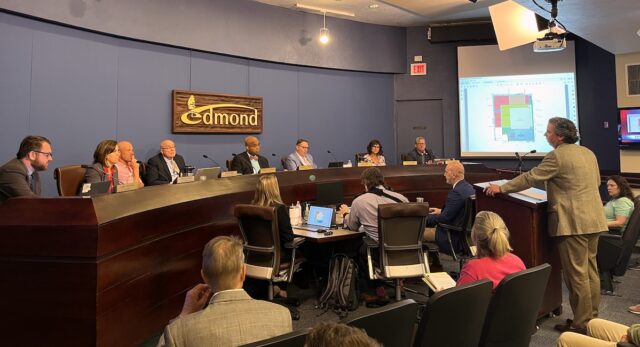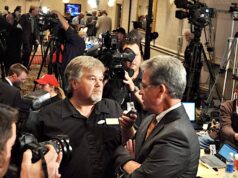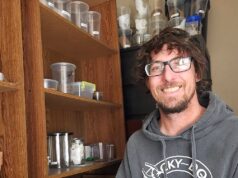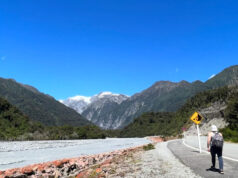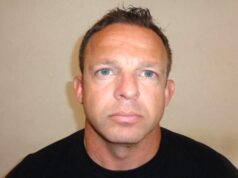
The Edmond City Council unanimously approved a resolution Monday night directing staff to develop a process allocating all city sales tax collections from marijuana dispensaries toward community programs and projects “that positively impact the health and well-being of youth and adults.”
Ward 2 Councilman Josh Moore, who proposed the resolution, said he saw this as an opportunity to support “positive, healthy community programs.”
“On purpose, I left the language broad for current council and future councils at budgeting time — and staff — to really narrow it into positive projects or programs for the health and well-being of youth and adults,” Moore said.
Additionally, Moore said the resolution will allow the city to better track its sales tax collections from medical marijuana purchases. Oklahoma Tax Commission data show that the City of Edmond collected $916,964.70 from medical marijuana purchases in 2021 and $818,424.59 in 2022. However, there is some confusion surrounding the city’s total collections from those purchases.
“There is the need to improve that with the Oklahoma Tax Commission on how we know exactly what revenue (we receive),” Moore said. “So to be a little more specific, they need a specific report that’s provided to us to be able to know what that dollar amount is, because it does include businesses in our ZIP code which might be out of our city limits.”
The resolution passed Monday will also redirect those sales tax proceeds from the city’s general fund, which is dedicated to street maintenance and parks and recreation, among other services.
“Right now, it’s going into our general fund, which would be the same as a department store, a clothing store or a grocery store. My own personal feeling was that’s not a tax that I feel like that we should grow dependent on,” Moore said. “And so in the future, if it were to ever change, or be changed or even be repealed, then we wouldn’t be depending on it for other jobs in the city of Edmond.”
Edmond city manager Scot Rigby said the resolution’s broad language allows for future councils to allocate the money for various uses.
“One year it could be some youth scholarships in our parks and rec program for kids who love to play that sort of sport, but they don’t have the financial means to do that. The next year it could be ‘Hey, let’s help Mobile Meals because they have a surge in demand,'” Rigby said. “It can vary from year to year.”
Moore, who will be succeeded in the Ward 2 seat by Barry Moore after the April 24 council meeting, said he hopes the medical marijuana sales tax resolution will support future generations of Edmond citizens.
“I think about my own kids and their lives at school and their lives outside of school and programs,” Josh Moore said. “If it’s five, 10, 20 years from now and I’m thinking that this is helping our next generations in some way and in any way, I will just be so proud.”
Kelly Corner rezoning approved
Also Monday, the Edmond City Council unanimously approved a rezoning application from developer Clay Coldiron for a 150-acre property on the southeast corner of Covell Road and Kelly Avenue to a planned unit development (PUD). The zoning will allow for mixed residential development on the property’s interior and commercial uses on the outer edges along Covell Road and Kelly Avenue.
One parcel of the property, which abuts Covell Road, is proposed for a high density multifamily community with up to 300 units in a three to four-story building. The southernmost parcel on the property proposes a community for seniors with up to 120 units. Another interior parcel proposes two-story townhomes.
As both residential and commercial uses are within the development plan, attorney Todd McKinnis, who represents Coldiron, said the area will create its own commerce.
“Clay uses the term really well of ‘new urbanism’ when he talks about this project. Which is kind of difficult, because you’re looking at 150 — plus or minus — acres, and it’s really not urban. I mean, it’s not like the wonderful things you guys are doing downtown,” McKinnis said. “But the idea is to create a micro-economy up in this area.”








